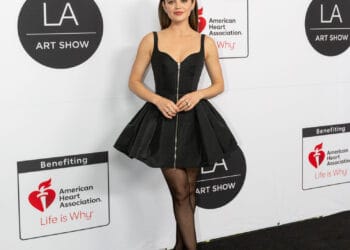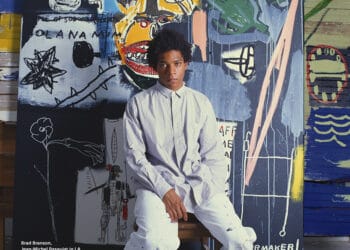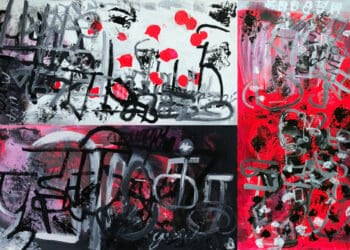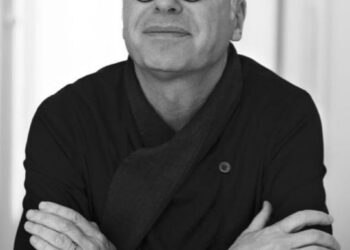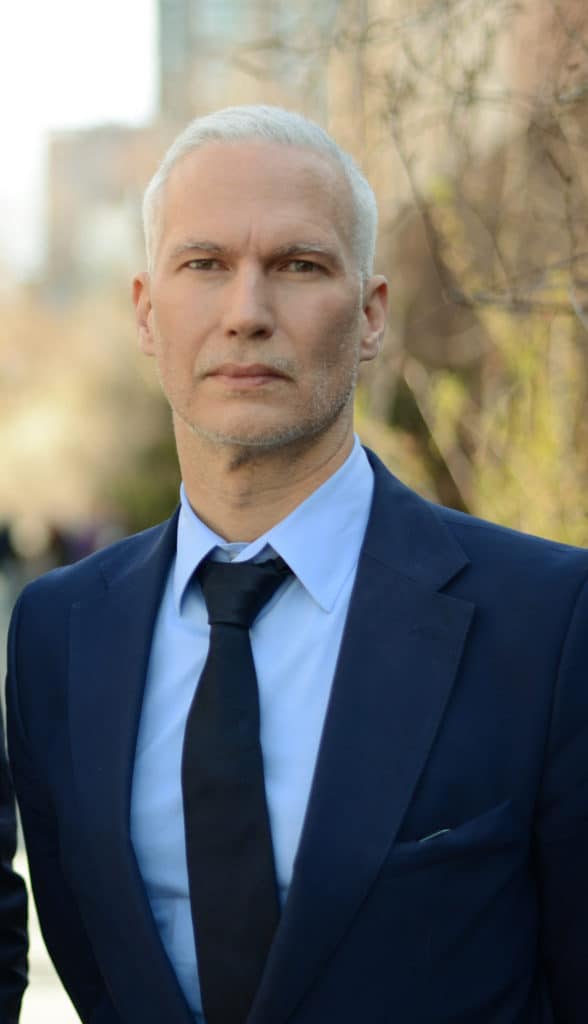
Following a wide-ranging international search, the Board of Trustees of The Museum of Contemporary Art, Los Angeles, today voted to appoint the internationally acclaimed museum director Klaus Biesenbach as MOCA’s next director.
A visionary museum leader, Biesenbach comes to MOCA from The Museum of Modern Art, New York, where he has served as director of MoMA PS1 and chief curator at large of MoMA since 2010.
During his leadership at the institution, the former P.S. 1 Center for Contemporary Art was transformed into the thriving MoMA PS1, with Biesenbach becoming known for championing emerging artists throughout the New York area, advocating for programs that made PS1 a gathering place for popular, multidisciplinary, in-the-moment artmaking and discussion.
During his tenure as director of MoMA PS1, the Board of Trustees was expanded from 11 to 30 members, and the budget more than doubled to accompany successful programmatic and institutional growth.
As director of MOCA, Biesenbach will assume executive leadership of one of the most important museums of contemporary art in the world, holding an extraordinary collection comprising more than 7,000 objects and a record of organizing international, diverse, ground‐breaking, and scholarly exhibitions.
MOCA is the only independent, artist‐founded museum in Los Angeles dedicated solely to collecting and exhibiting contemporary art.
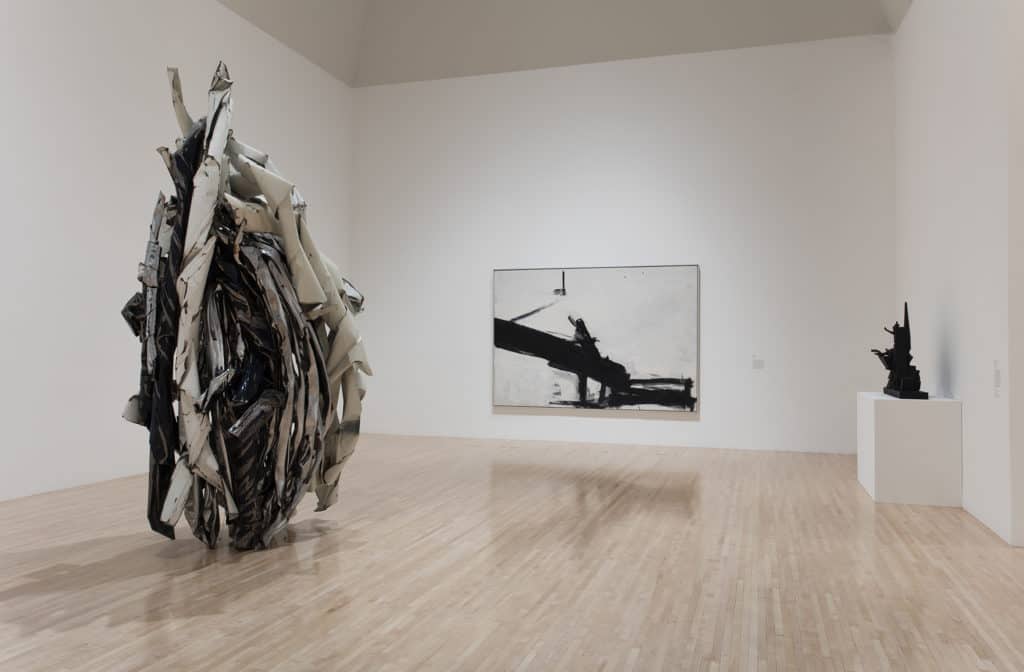
ongoing, at MOCA Grand Avenue, ©2018, courtesy of The Museum of Contemporary Art, Los Angeles, photo by Brian Forrest.
In 2013, MOCA successfully completed an unprecedented endowment campaign to bring its endowment to over $100 million, and it now stands at over $130 million.
Maurice Marciano and Lilly Tartikoff Karatz, co-chairs of MOCA’s Board of Trustees, said, “On behalf of ourselves and the entire Board, we want to thank the search and selection committee, especially the artists, for bringing this process to such an outstanding conclusion. The Board is excited to welcome Klaus Biesenbach, one of the world’s most knowledgeable, wide-ranging, and innovative museum executives of contemporary art. We also extend our warmest appreciation to Philippe Vergne for his service to MOCA.”
Maria Seferian, president of MOCA’s Board of Trustees and chair of the search committee, said, “We are proud to have undertaken a thorough and international search, conducted with the indispensable participation of our artist trustees. The Board is aligned in our support of Klaus and thrilled that he has accepted our offer.”
Catherine Opie said, “It’s been crucial to me, Barbara Kruger, Mark Bradford, and Mark Grotjan, as some of the artists on the Board, that we’ve had a strong voice in the selection process. I want everyone in our community to know that we’re thrilled to have Klaus Biesenbach join us. He comes to MOCA with a level of mutual trust with artists that is crucial for everything this museum does today, and that we hope it will be able to do in the future.”
According to the New York Times, Deborah McLeod, director of the Beverly Hills branch of Gagosian stated that the hire of Klaus Biesenbach “radically good news,” and reportedly stating that “MOCA needs this level of organizational leadership and vision.”
Hollywood Sentinel Publisher Bruce Edwin, who also represents numerous Masterworks of fine art in private collection states, “I am very pleased about MOCA’s new appointment of Mr. Biesenbach. Like Jeffery Deitch before him, I think he has great style and taste. I am excited to see the cool new shows that will be coming to MOCA thanks to Klaus’ extraordinary vision.”
Klaus Biesenbach stated, “Like so many of my colleagues around the world, I have long seen MOCA as one of the most vital institutions in our field. It is humbling to be invited to lead a museum that has already achieved so much, and that in so many ways represents the highest aspirations of contemporary art. With my gratitude to the search committee and the entire Board of Trustees, I look forward to serving MOCA’s constituencies, its increasingly large and diverse public, the artists’ community, and of course all residents of Los Angeles to the very best of my abilities.”
Klaus Biesenbach began his career in Berlin as founder of Kunst-Werke (KW) Institute for Contemporary Art (1990) and the Berlin Biennale (1996), the exhibition that confirmed Berlin’s international reputation as a leading city where artists live and work.
He came to New York in 1995 to serve as curator at P.S. 1 Center for Contemporary Art (later MoMA PS 1). There, with Alanna Heiss, he created the Warm Up outdoor summer series of live and electronic music, which has been widely emulated by other museums around the world, co-founded the now-legendary Greater New York exhibition series, which showcases emerging talent from everywhere in the metropolitan region, and with former MoMA Associate Director Kathy Halbreich, established the popular, multidisciplinary Sunday Sessions, which are housed in the winter under a geodesic dome.
In 2006, he was named chief curatorial advisor at PS1 and founding Chief Curator of MoMA’s newly formed Department of Media, which he broadened through performance workshops and acquisitions, and, in 2009, he became founding Chief Curator of the Department of Media and Performance Art.
His performance workshop at MoMA, which brought together museum directors, curators, scholars, and artists, culminated in the acquisition of The Kiss by Tino Sehgal, the first completely immaterial work in MoMA’s collection, and the exhibitions of Tehching Hsieh and Marina Abramovic, which established performance art as one of the necessary disciplines in museums throughout the world. Biesenbach has pioneered the ongoing Rockaway! public arts festival in response to Hurricane Sandy, which has featured site-specific works by Janet Cardiff, Patti Smith, Katharina Grosse, and Yayoi Kusama, among others.
THE MUSEUM OF CONTEMPORARY ART, LOS ANGELES (MOCA)
About MOCA: Founded in 1979, MOCA’s vision is to be the defining museum of contemporary art. In a relatively short period of time, MOCA has achieved astonishing growth with three Los Angeles locations of architectural renown; a world-class permanent collection of more than 7,000 objects, international in scope and among the finest in the world; hallmark education programs that are widely emulated; award-winning publications that present original scholarship; groundbreaking monographic, touring, and thematic exhibitions of international repute that survey the art of our time. MOCA is a not-for-profit institution that relies on a variety of funding sources for its activities.
Hours of Operation
Hours: MOCA Grand Avenue (located at 250 South Grand Avenue in Downtown Los Angeles) is open Monday, Wednesday, and Friday from 11am to 6pm; Thursday from 11am to 8pm; Saturday and Sunday from 11am to 5pm; and closed on Tuesday.
The MOCA Store at MOCA Grand Avenue is open Monday through Wednesday and Friday from 10:30am to 5:30pm; Thursday from 10:30am to 8:30pm; and Saturday and Sunday from 10:30am to 6:30pm.
The Geffen Contemporary at MOCA (located at 152 North Central Avenue, Los Angeles, CA 90012) has the same hours as MOCA Grand Avenue during exhibitions. Please call ahead or go to moca dot org for the exhibition schedule for The Geffen Contemporary at MOCA.
MOCA Pacific Design Center (located at 8687 Melrose Avenue, West Hollywood, CA 90069) is open Tuesday through Friday from 11am to 5pm; Saturday and Sunday from 11am to 6pm; and closed on Monday.
Museum Admission: General admission is free for all MOCA members.
General admission is also free for everyone at MOCA Grand Avenue and The Geffen Contemporary at MOCA on Thursdays from 5pm to 8pm, courtesy of Wells Fargo. General admission is always free at MOCA Pacific Design Center.
General admission at MOCA Grand Avenue and The Geffen Contemporary at MOCA is $15 for adults; $8 for students with I.D.; $10 for seniors (65+); and free for children under 12 and jurors with I.D.
More Information: For 24-hour information on current exhibitions, education programs, and special events, call 213-626-6222 or access MOCA online at www.moca.org
This content is ©2018, Hollywood Sentinel and respective, noted content ©2018 MOCA with kind courtesy, all rights reserved.





